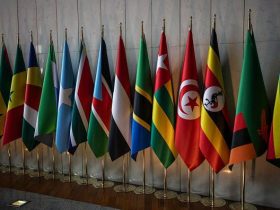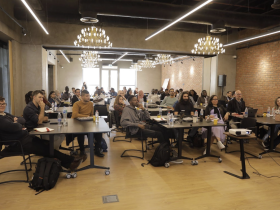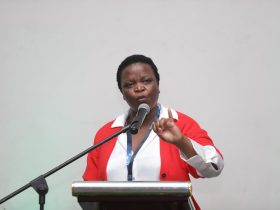Gender parity is not just a moral imperative; it’s an economic and social necessity. In South
Africa, like many parts of the world, the journey toward achieving gender parity has been met by
significant progress but also glaring challenges. So what is the current state of gender equality
in South Africa, and what is needed to drive lasting change.
Progress Made
South Africa has made noteworthy advances in promoting gender equality over the years,
particularly in political representation. South Africa ranks 2nd place out of the G20 members,
with women holding 42% of the seats in the National Assembly. This achievement reflects a
strong commitment to women’s empowerment in decision-making roles.
The Global Gender Gap Index 2022, released last year by the World Economic Forum (WEF)
showed that South Africa’s ranking in gender parity declined from 18 to number 20. The
country’s slight decline in rankings was not because of any regression experienced in key
metrics, but because some of the countries had improved their scores.
Challenges That Persist
Despite these commendable achievements, significant gender disparities endure in South
Africa.
The gender pay gap persists, with women earning 29.5% less than men on average, according
to Statistics South Africa’s 2020 data. This gap not only perpetuates inequality but also
exacerbates broader economic disparities.
Gender-based violence remains a deeply entrenched issue, with South Africa having one of the
highest rates globally. Shocking femicide statistics and incidents of violence against women
highlight the urgency of addressing this crisis.
Women’s representation in top corporate leadership roles remains low. A 2021 study by the
Business Women’s Association of South Africa reported that women held only 23% of
directorship positions in JSE-listed companies. This underrepresentation stifles the full utilisation
of women’s talents and potential in the corporate world.
Collective Action for Change
To move closer to achieving gender parity in South Africa, it is imperative that we take concerted
and comprehensive actions, such as:
•Implementing and enforcing policies that ensure equal pay for equal work. Encourage
organisations to conduct pay equity audits and take corrective measures.
•Strengthening law enforcement, support systems, and shelters for survivors of gender-
based violence. Engaging in public awareness campaigns to challenge harmful gender norms is
also crucial to removing gender biases.
•Advocating for gender diversity on corporate boards and in executive positions. Set clear
targets for female representation and establish mentorship and sponsorship programs to groom
female talent.
•Guaranteeing equal access to quality education for all girls, addressing issues such as
early pregnancies and school dropouts that disproportionately affect them.
•Creating an enabling environment for female entrepreneurship. Provide access to
finance, training, and networking opportunities to empower women-owned businesses.
Achieving true gender parity in South Africa demands the collective efforts of government,
businesses, civil society, and individuals. It calls for an unwavering commitment to dismantling
gender-based discrimination and providing women with the opportunities and support they need
to realise their full potential.
Each one of us can play a role in this journey toward gender parity. Whether it’s through
supporting initiatives, advocating for policy changes, or promoting gender equality in our
workplaces and communities, our actions collectively contribute to building a more equitable
South Africa. Gender parity is not just a goal; it’s a shared responsibility that we must actively
pursue for the betterment of all.




























Leave a Reply